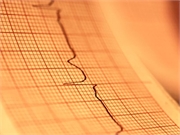
TUESDAY, Jan. 7, 2020 (HealthDay News) -- A new compound might help stem the damage of a heart attack, research in animals suggests.
Giving recombinant human platelet-derived growth factor-AB (rhPDGF-AB) to pigs lessened the effect of heart scarring, helped form new blood vessels and reduced the rates of heart arrhythmias, heart failure and sudden cardiac death, researchers found.
"This is an entirely new approach, with no current treatments able to change [scarring] in this way," said lead researcher James Chong, an associate professor at the University of Sydney, in Australia.
"By improving cardiac function and scar formation following a heart attack, treatment with rhPDGF-AB led to an overall increase in survival rate in our study," he added in a university news release.
After a heart attack, treatment is aimed at restoring blood flow and reducing scarring. As many as 25% of those having a first heart attack develop heart failure in the year following the attack, the researchers noted.
"While we have treatment protocols in place, it's clear that there is an urgent, unmet need for additional treatments to improve patient outcomes, particularly after large heart attacks," Chong said.
Before this treatment can be tried on humans, more animal studies are needed to be sure giving rhPDGF-AB is safe and to figure out the best dose. And animal research doesn't always pan out in humans.
Eventually, rhPDGF-AB could be given along with existing treatments to improve survival rates, the study authors said.
"We now hope to further investigate the treatment, including whether it could be used in other organ systems impacted by scar tissue, such as the kidneys," Chong said.
The report was published Jan. 1 in the journal Science Translational Medicine.
More information
For more on heart attack, head to the American Heart Association.
Back

The news stories provided in Health News and our Health-E News Newsletter are a service of the nationally syndicated HealthDay® news and information company. Stories refer to national trends and breaking health news, and are not necessarily indicative of or always supported by our facility and providers. This information is provided for informational and educational purposes only, and is not intended to be a substitute for medical advice, diagnosis, or treatment.






